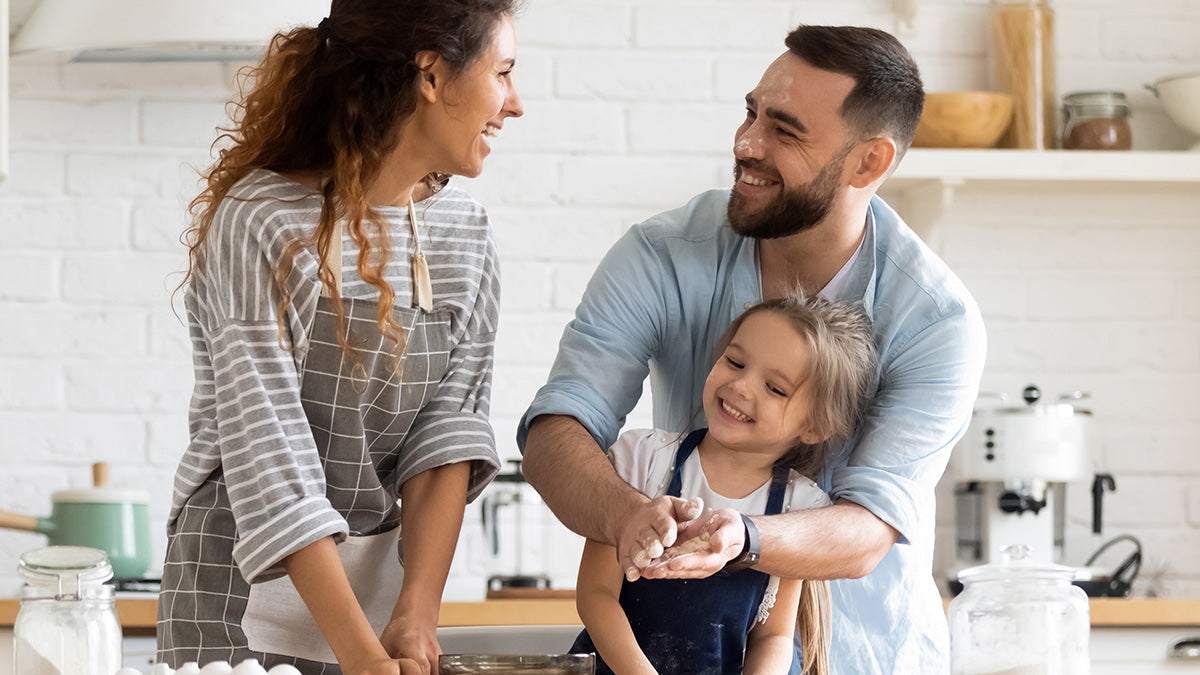Quick Summary
- Being prepared reduces anxiety by giving you control over what you can influence.
- Taking small preparedness actions creates a "confidence cascade" that improves overall mental well-being.
- Having emergency plans significantly reduces stress during actual disasters.
- Preparedness activities can strengthen family bonds and build children's resilience.
- The act of preparing itself—not just the end result—provides immediate mental health benefits.
Table of Contents
- Why Does Being Prepared Make You Feel Better?
- How Does Preparedness Reduce Anxiety and Stress?
- What's the "Confidence Cascade" Effect?
- Can Preparedness Activities Strengthen Family Bonds?
- How Does Teaching Kids Preparedness Build Mental Resilience?
- What Are the Immediate Mental Health Benefits of Taking Action?
When we think about emergency preparedness, we often focus on the practical benefits.
Such as having food when stores are empty, staying warm during power outages, or having clean water during disruptions…
And while these are VERY important, there's also a hidden benefit that’s just as valuable—if not more so: the profound positive impact on your mental health.
As we celebrate National Wellness Month this August, it's the perfect time to explore how preparedness can transform not just your pantry, but your entire mental outlook.
Why Does Being Prepared Make You Feel Better?
The mental health benefits of preparedness go far beyond simply "feeling ready." Research has shown that having a good sense of control is linked to various health outcomes, including psychological well-being.
And it makes sense!
When you build your food storage or organize your emergency supplies, you're actively taking control of your family's future in a world that often feels chaotic.
You’re certain that whatever happens tomorrow – storm, food shortage, people panic buying, anything – your family is safe.
And that helps you sleep better…
It helps you walk with more confidence…
Speak more clearly, look people in the eye, and feel proud knowing you’ve taken steps to keep your loved ones protected!
That peace of mind is priceless.
How Does Preparedness Reduce Anxiety and Stress?

Anxiety thrives on uncertainty. It feeds on those "what if" scenarios that play on repeat in our minds at 2 AM.
But here's what's remarkable: when you have emergency plans and supplies in place, those racing thoughts quiet down. You've already answered the "what ifs." You've already solved tomorrow's potential problems today.
Because every #10 can of freeze-dried food on your shelf is one less thing to worry about. Every gallon of stored water represents security. Every emergency plan represents confidence instead of chaos.
That's the power of preparedness. It doesn't prevent challenges, but it transforms how you face them.
What's the "Confidence Cascade" Effect?
Here's where things get really interesting. Preparedness creates what some people call a "confidence cascade"—where small wins build into bigger transformations.
It starts simply:
- You organize your existing pantry → You feel more in control
- You add a few emergency water pouches → You worry less about water disruptions
- You stock some freeze-dried meals → You stop stressing about empty grocery shelves
- You create a family emergency plan → You feel empowered instead of helpless
Each action builds on the last, creating momentum. Before long, that initial anxiety has transformed into quiet confidence.
You're not just prepared for emergencies…
You're mentally stronger in everyday life!
Can Preparedness Activities Strengthen Family Bonds?

One of the most surprising mental health benefits of preparedness is how it brings families together.
When you involve your whole family in preparedness activities, something special happens. Instead of shouldering worry alone, you're creating shared experiences and teaching valuable life skills.
Consider these bonding opportunities:
- Cooking together with your stored foods (kids love snacking on freeze-dried fruit goodness!)
- Planning sessions where everyone contributes ideas
- Practice drills that feel more like family adventures than chores
- Organizing supplies as a team-building activity
These shared activities build trust, communication, and family resilience. Children especially benefit from seeing their parents take calm, practical action rather than expressing worry or fear.
What Are the Immediate Mental Health Benefits of Taking Action?
You don't have to wait for an emergency to experience the mental health benefits of being prepared. The act of preparing itself provides immediate rewards:
Reduced Decision Fatigue: When you have supplies ready, you eliminate countless stressful decisions during emergencies. Your brain can focus on what matters most: keeping your family safe and calm.
Sense of Purpose: In a world full of problems that feel beyond our control, preparedness gives you something meaningful and achievable to focus on. Every small step matters.
Better Sleep: Many people sleep better once they have basic preparations in place. That low-level background anxiety simply disappears.
Increased Optimism: Contrary to what most people think, preparing for challenges often makes people more optimistic. When you know you can handle difficulties, you worry less about them occurring.
The Path to Peace of Mind Starts With a Single Step
This National Wellness Month, let’s celebrate our freedom.
Freedom from worry. Freedom from that nagging anxiety. Freedom to fully enjoy today because you've already taken care of tomorrow.
Your mental wellness matters, and so does your family's security. Why not address both with one simple step?
Check out our Wellness Week Sale for incredible deals on everything you need to feel in control in today’s unpredictable world!

